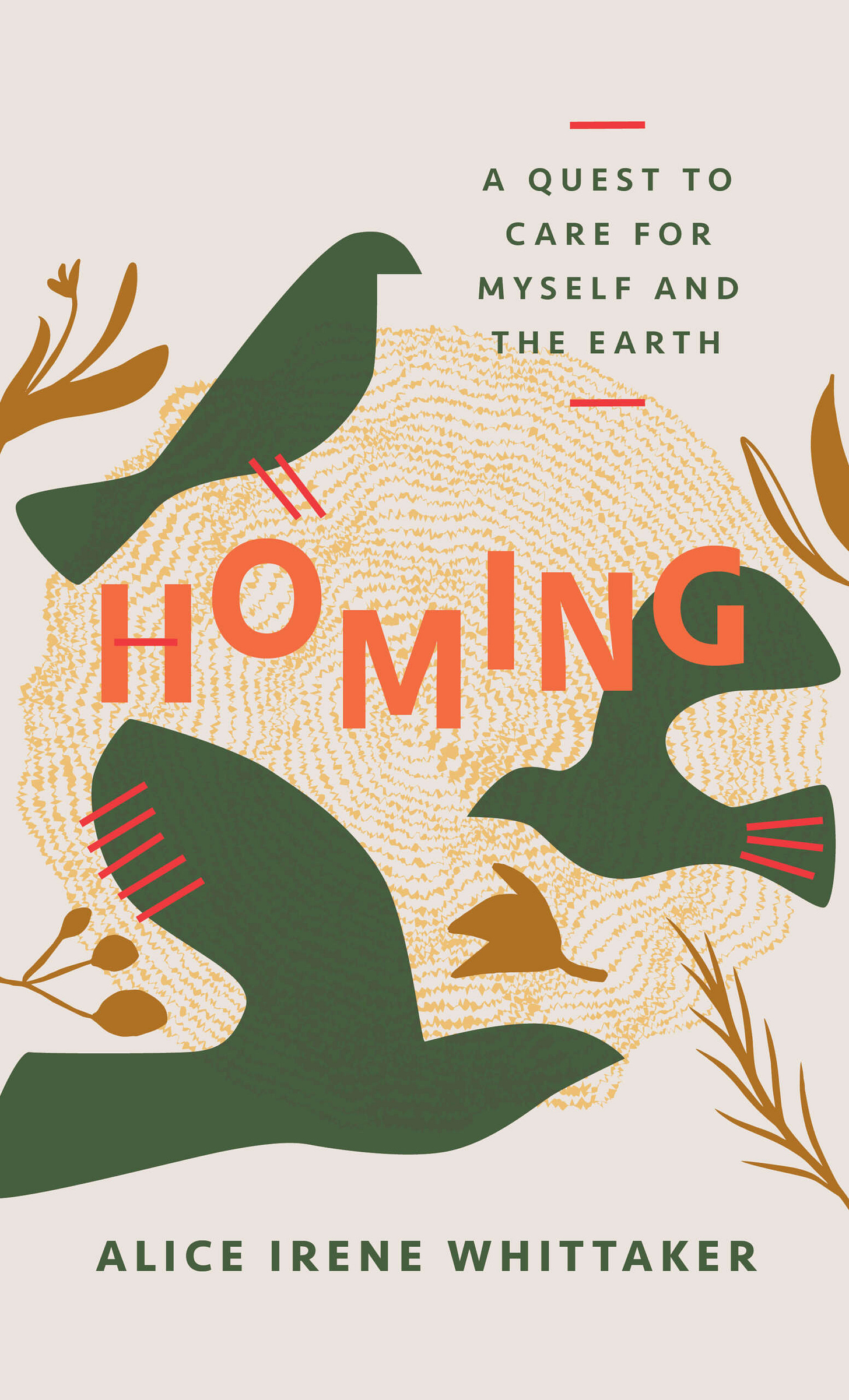“Homing” Explores Sustainability, Motherhood, and Actions to Save the Planet
Reviewed by Lisa Timpf
In Homing: A Quest to Care for Myself and the Earth, Alice Irene Whittaker shares reflections on sustainable living. Some of these reflections relate to personal experience, while other information is based on Whittaker’s discussions with those seeking ways to preserve the health of the planet.
“Homing offers a blend of memoir and hard fact, presented in a non-linear fashion with frequent flashbacks.”
Homing offers a blend of memoir and hard fact, presented in a non-linear fashion with frequent flashbacks. Whittaker discusses her experiences of connection with nature while living at Birdsong Cabin, a small one-and-a-half-storey house located on acreage in Québec.
In addition to sustainability, the author also reflects on motherhood, her own struggles with perfectionism and other issues, and her efforts to balance practicality with idealism. The author’s willingness to share her vulnerability humanizes the book and makes it easier to connect to its messages.
There is also a journalistic aspect to Homing, as Whittaker talks about visits with experts and trips to conferences to learn about different aspects of sustainable living. Whittaker notes that “our capitalist system’s preoccupation with profit has led us to a troubling situation,” listing among the concerns “immense waste, polluted water, climbing greenhouse gas emissions, poor working conditions, factory disasters, habitat loss, clutter, the lie of shopping therapy as medicine for our wounds, cheap quality, and the stealing of creative designs by big companies.” She adds that “a rejection is steadily growing against the excessive, individualistic consumption that is sold to us as our duty.”
It’s one thing to be critical of the current state, and another to offer solutions. Homing explores potential actions that can be taken in a number of areas. Alternative land use practices like regenerative farming and soil rejuvenation are discussed. Straw bale construction, building homes from recycled materials, and “unbuilding,” the practice of taking buildings apart to salvage old growth timber and other materials, are examined in a chapter titled “Belongings: Houses and Home Making.” Whittaker reviews the “Buy Nothing” movement, the right to repair, and tool libraries, all of which push back against the consumption imperative.
Among the topics I found particularly intriguing were sustainable fashion and fibersheds. Fibersheds are like the “farm to table” movement, but involving clothing rather than food. In this model, Whittaker notes, “clothing would be grown, designed, dyed, created, worn, passed on, and eventually composted in our own regions.” Fibersheds, Whittaker notes, would offer “stark opposition to the fast fashion industry that relies on harmful chemicals and dyes, excessive water and land use, human exploitation, and ever-rising greenhouse gas emissions to produce clothing.”
In the section dealing with fibersheds, Whittaker references a fashion professor in Montréal who was “in the process of convening the first gathering to form a fibershed in Québec.” Whittaker also mentions Fashion Revolution and the #WhoMadeMyClothes campaign.
Perhaps like many of her prospective readers, Whittaker swings between hope and sadness, between optimism that changes can be made to redress the negative impacts humans have had, and continue to have, on the planet, and concern over how much damage has been done.
It’s easy to succumb to despair, particularly when combatting the doomerism intentionally promoted by those who want people to just give up and give in. But Whittaker points out that it’s not up to any one individual to single-handedly rectify all the ills of the past. Effective change is most likely to be made through community and combined effort. By exploring some of the ways people can express regenerative, rather than extractive, mindsets, Homing offers strategies we can use to make things better, together.
About the Author
Alice Irene Whittaker is an author, mother, and environmental communications leader. She is the creator and host of the Reseed podcast. She has been a finalist for all three CBC Literary Prizes, and her writing has been published in national and international publications. Alice Irene has spent over a decade in leadership and executive roles in nonprofit organizations. With her husband, three children, brood of chickens, trio of cats, and a dog, Alice Irene lives in a cabin in the woods on unceded Algonquin Anishinaabe land in Québec. Homing is her first book.
Book Details
Publisher : Freehand Books (Sept. 17 2024)
Language : English
Paperback : 300 pages
ISBN-10 : 199060174X
ISBN-13 : 978-1990601743



